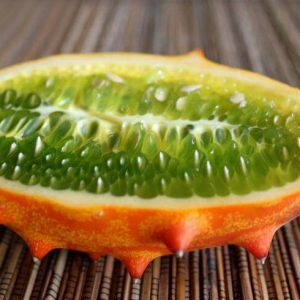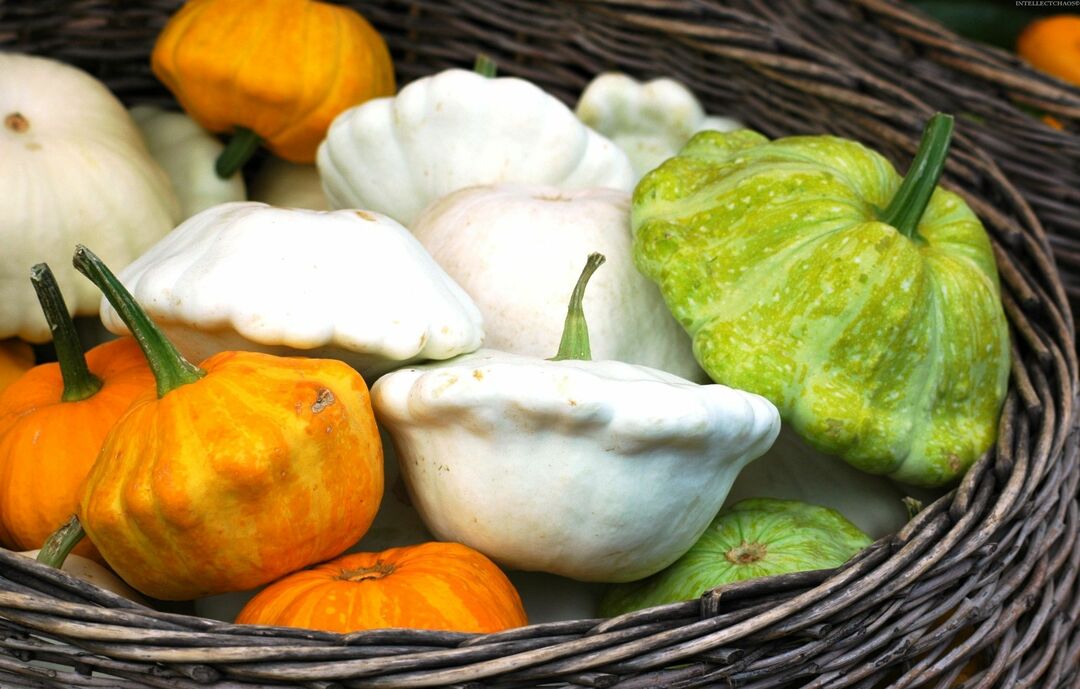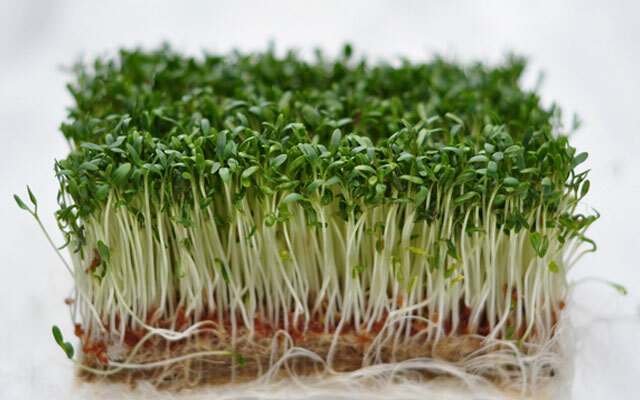Diet for GERD with esophagitis
GERD (or gastroesophageal reflux disease) with esophagitis is a common gastroenterological disease that develops when gastric juice is injected into the esophagus. With the negative effect of hydrochloric acid, the walls of the esophagus are destroyed, which leads to the development of an inflammatory process. To eliminate the unpleasant symptoms of pathology, an integrated approach is required, including taking medications, adhering to a special regimen and physiotherapy procedures. But in the early stages of the development of pathology, a diet is prescribed for GERD with esophagitis, the regular observance of which improves the functioning of the digestive system.
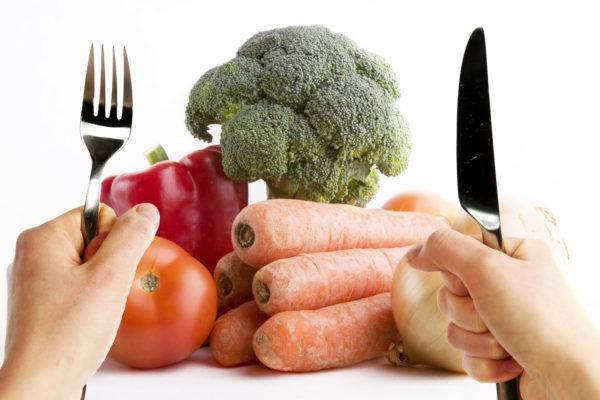
Diet for GERD with esophagitis
Content
- 1 The reasons for the development of pathology
- 2 Typical symptoms
- 3 The role of diet in esophagitis
- 4 Features of diet therapy
- 5 What products should be discarded
- 6 Sample menu for the day
-
7 What do experts recommend
- 7.1 Video - Diet for gastroesophageal reflux disease
The reasons for the development of pathology
The main reason for the development of reflux esophagitis is the malfunction of the sphincter (locking mechanism). Such violations often occur against the background of diseases of the gastrointestinal tract, oncological processes or hernia of the esophagus.
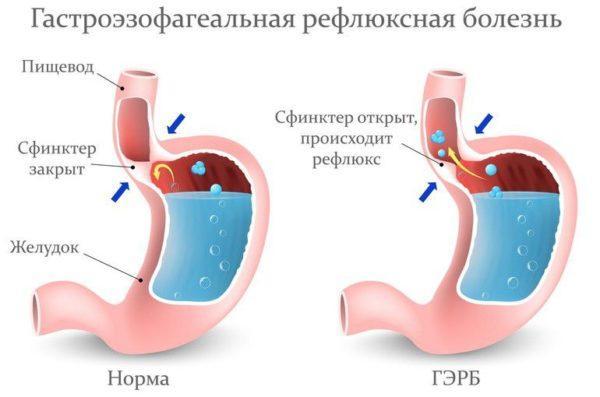
Gastroesophageal reflux disease (GERD)
The main factors contributing to the development of the disease include:
- excessive consumption of salty, spicy or fatty foods;
- overweight;
- diabetes;
- long stay in an inclined position;
- mechanical damage to the organs of the digestive system, resulting from trauma;
- a state of shock, depression or severe stress - all these phenomena exhaust the nervous system;

Severe stress is one of the reasons for the development of the disease
- period of pregnancy;
- frequent use of strong coffee and tea;
- the presence of bad habits such as smoking, alcohol or drug abuse;
- lifting large weights, increased physical activity;
- unbalanced diet or irregularity (for example, nighttime snacks, overeating or drinking carbonated drinks).
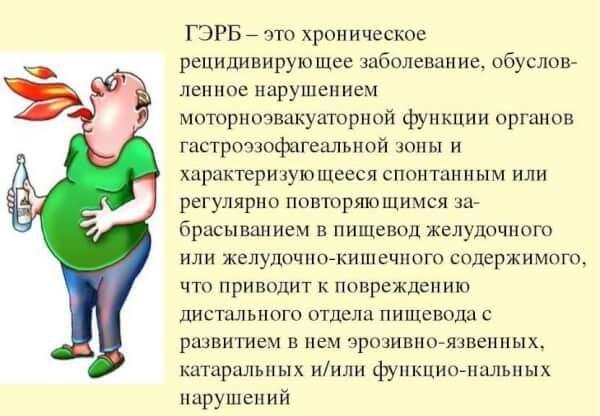
What is GERD
Note! GERD with esophagitis is a disease that includes many pathological processes that affect the functioning of the digestive system. It also occurs against the background of congenital diseases or with a genetic predisposition. But in order to prevent the development of pathology, it is necessary to eliminate all negative factors.
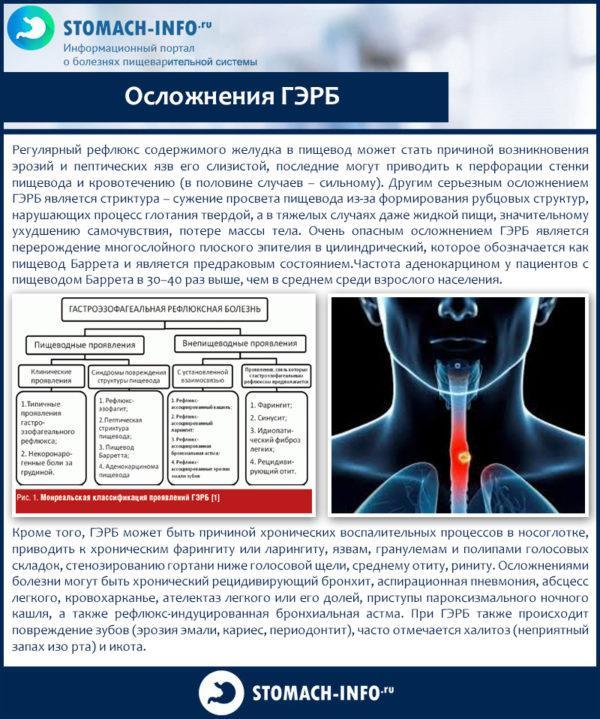
Complications of GERD
Typical symptoms
Reflux disease is usually accompanied by an unpleasant taste in the mouth, frequent belching, or bouts of heartburn. But there may be other signs that are mistakenly attributed to symptoms of diseases of the nervous, musculoskeletal and cardiovascular systems. Therefore, when making a diagnosis, the doctor must take into account the complex symptoms.
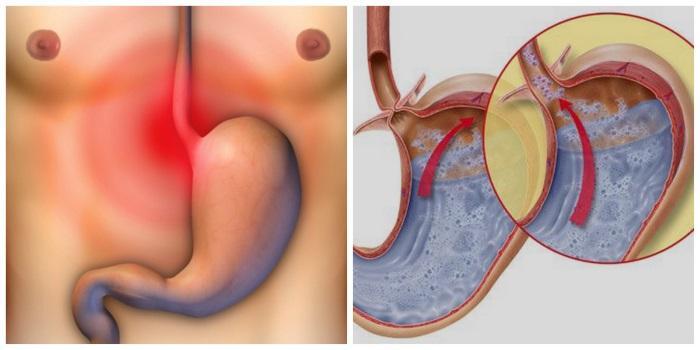
The main symptoms of pathology
The most common signs of GERD with esophagitis include:
- painful sensations in the abdomen, which can radiate to the lower jaw or left hypochondrium;
- bouts of nausea, constant heartburn;
- bitter or sour belching;
- the formation of a white or yellowish coating on the surface of the tongue;
- increased nervousness and irritability;
- sleep problems, insomnia;
- general weakness of the body, low efficiency;
- dry cough attacks;
- the appearance of heaviness in the stomach after eating;
- trouble swallowing;
- increased body temperature.
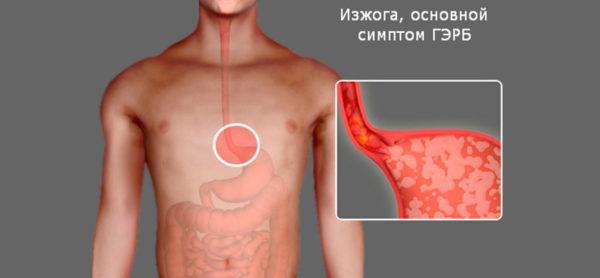
Heartburn is the main symptom of GERD
If the patient is not provided with timely medical care, the disease can progress, as a result of which new, more serious ones are added to the above symptoms. The pain syndrome increases, and bouts of belching can turn into vomiting.
The role of diet in esophagitis
As noted earlier, diet is one of the main treatments for esophagitis. First of all, the patient's diet should be balanced, that is, instead of 3 large meals, as is usually the case, it is necessary to eat 5-6 times a day, but in small portions. It is strongly not recommended to overeat, as this will negatively affect the operation of the valve, weakening it. When the valve is weakened, gastric juice enters the esophageal cavity, thereby irritating the mucous membrane of this organ. With regular overeating, nausea often appears, and patients also suffer from ulceration of the esophagus and stomach walls.
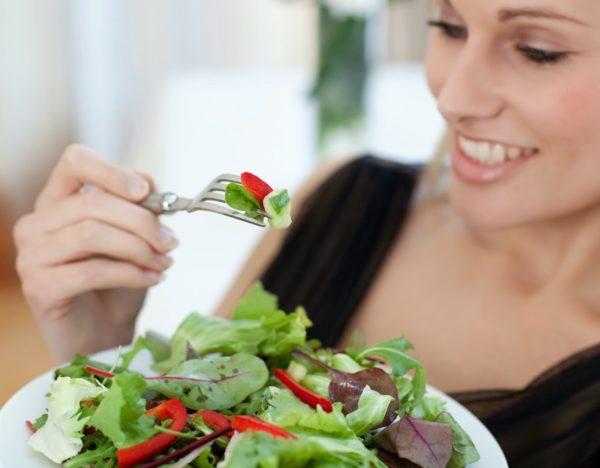
Nutrition for esophagitis
As soon as you notice the first signs of malaise, you should immediately seek help from a doctor. During the diagnostic examination, in which the doctor will conduct all the necessary tests, the patient will be given an accurate diagnosis. On its basis, an adequate complex of treatment is drawn up and a special diet is prescribed. Only the attending physician will be able to decide which foods should be excluded from the daily diet, and which, on the contrary, should be added. Ignoring the signs of pathology can provoke its transition to a chronic form.
Features of diet therapy
Nutrition for GERD should be aimed at protecting the esophageal mucosa from negative chemical and mechanical effects. For this purpose, the following principles must be observed:
- exclude from the diet or limit the amount of fatty foods consumed;
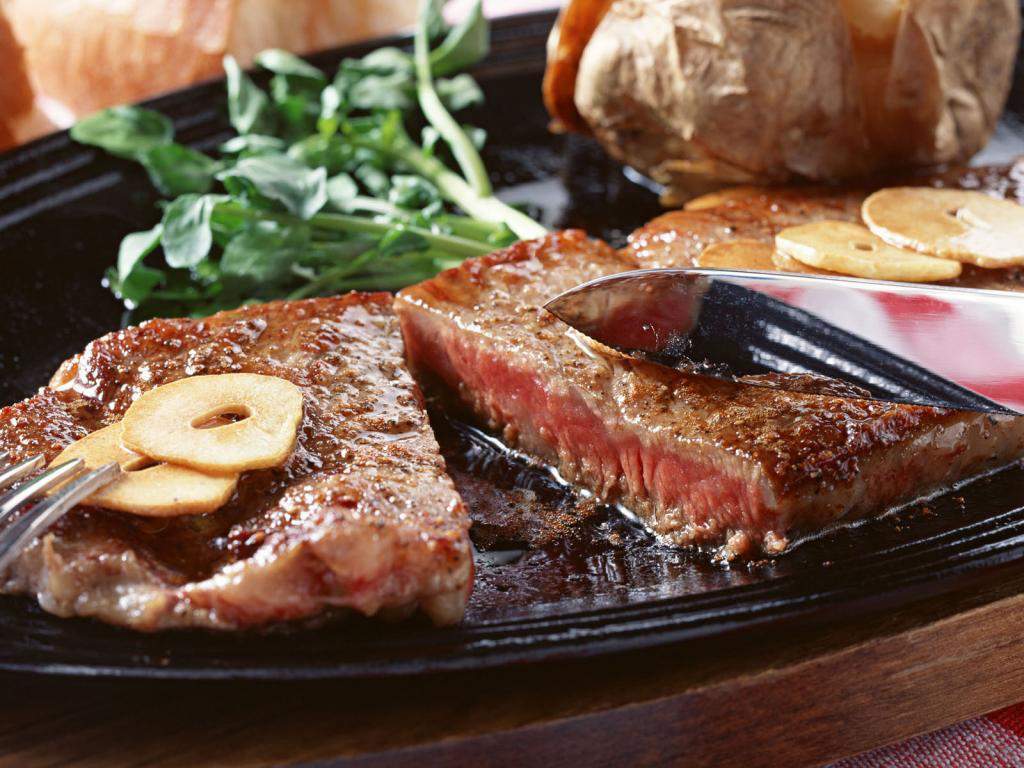
It is advisable to exclude fatty foods from the diet.
- observe the temperature regime. Eating too hot or cold food will negatively affect the mucous membrane;
- all products must be mechanically processed before use. For example, vegetables and meat should be served in the form of mashed potatoes, and soups and various cereals must be grated so as not to damage the mucous membrane of the esophagus;
- you need to eat often, but in small portions. Compliance with fractional nutrition will reduce the load on the digestive system. Also make sure that dinner is not earlier than a few hours before bedtime;
- right after eating, many people prefer to lie on the couch in front of the TV. But this is not recommended, as food can return back to the esophagus from the cardinal sphincter.

Do not lie down immediately after eating
You can go to bed after eating no earlier than 1.5-2 hours. Only if all these recommendations are followed can the desired therapeutic effect be achieved in GERD with esophagitis. Also, with the help of a therapeutic diet, you can prevent the development of many gastroenterological diseases in the future.
What products should be discarded
Depending on the severity of the disease and the patient's condition, the doctor makes up a therapeutic diet. But there are certain products that must be excluded from the menu in any case and regardless of the stage of pathology. Prohibited foods include:
-
dairy productsin particular milk. It is no secret that with the help of milk you can quickly eliminate an attack of heartburn, but due to the increased content of calcium and protein, the secretion of hydrochloric acid in the body increases again;
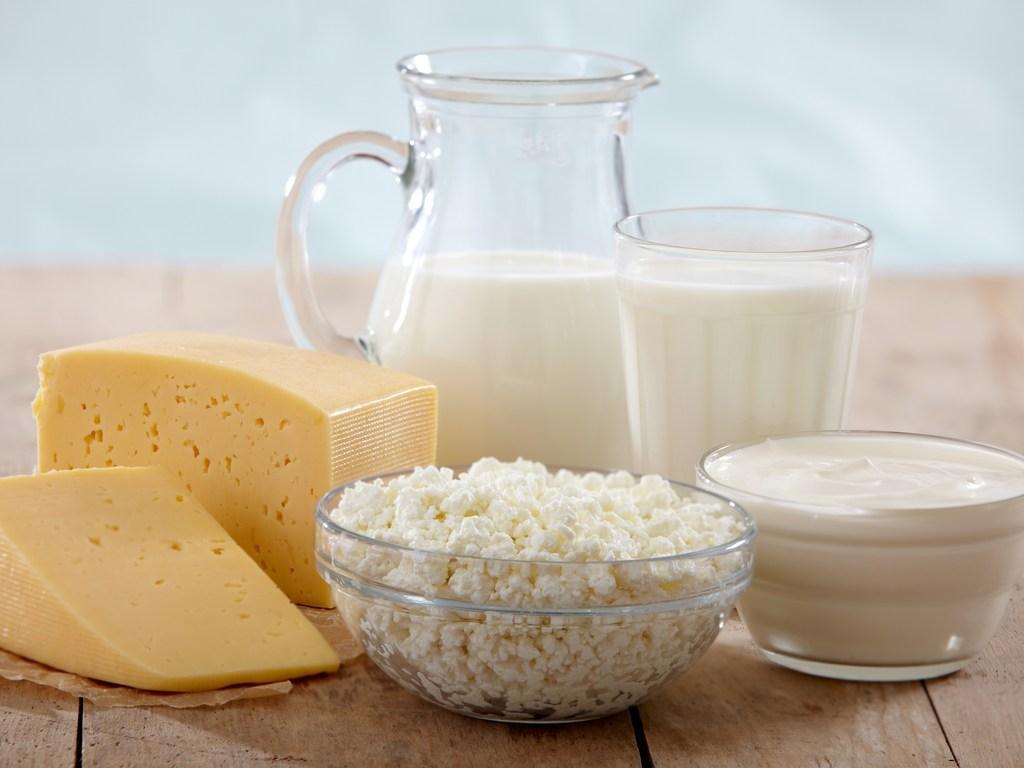
Dairy products
- marinades, spices, various condiments and sauces - all these products negatively affect the condition of the stomach, provoking the appearance of flatulence;
- fatty meals, rich broths, vinegar, garlic, fresh fruits and vegetables. Also, jellied meat, lard and pork should be excluded from the diet, as they lead to an increase in the production of gastric juice;
- sweets (sweets, chocolate, condensed milk, buns), radishes, black bread, beans, peas and other legumes, as well as mushrooms and cabbage in various forms;
- strong tea, coffee and alcoholic beverages.
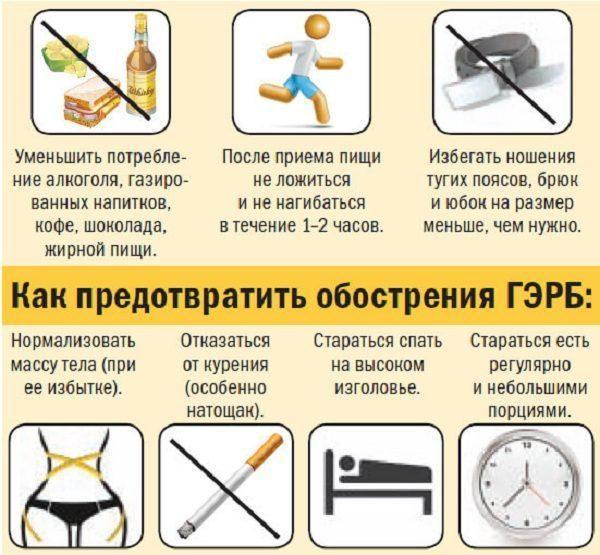
How to prevent flare-ups of GERD
This is not a complete list of foods that are not recommended for esophagitis. Therefore, before starting diet therapy, it is imperative to consult a specialist.
Sample menu for the day
You can prepare meals on your own, taking into account permitted and prohibited products, or use a ready-made scheme. Below is a sample daily diet that is used in diet therapy.
Table. Daily diet for GERD with esophagitis.
| Eating | Dishes |
|---|---|
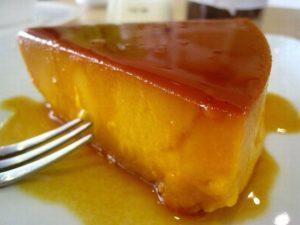 Breakfast |
Boiled potatoes and pumpkin pudding are great for your first meal. Sugar-free herbal tea can be prepared as a drink. |
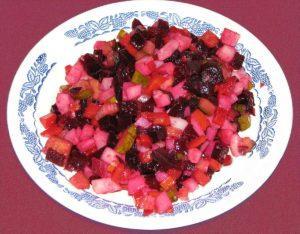 Lunch |
A small snack before lunch. Eat vinaigrette and fruit jelly. You can take one slice of white crusty bread. |
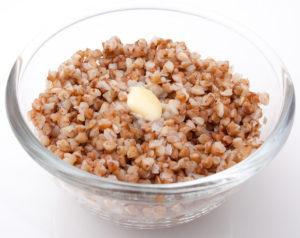 Dinner |
For the first, you can cook vegetable soup with noodles, buckwheat porridge and boiled chicken. Wash it all down with weak chamomile tea. |
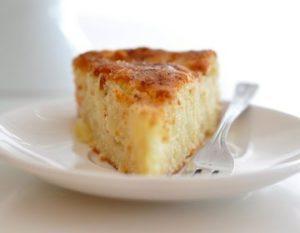 Afternoon snack |
Make a curd casserole, preferably a low-fat one. Herbal infusion or compote is suitable as a drink. |
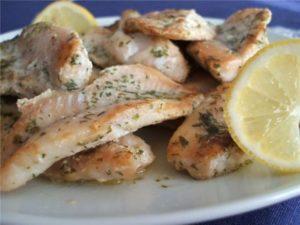 Dinner |
Boiled low-fat fish with vegetable salad and a slice of white bread. Wash it down with green tea. Also, a few hours before bedtime, you can drink a little fruit jelly (no more than 100 ml). |
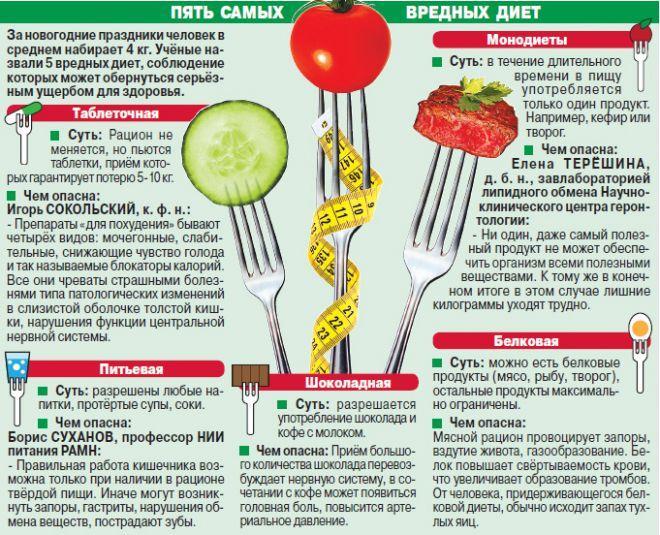
The five most unhealthy diets
On a note! If the patient's condition stabilizes with the diet, confectionery such as biscuits, rolls, chocolates and sweets can be added to the diet little by little. All of this can be eaten in reasonable amounts. But carbonated drinks still need to be discarded (champagne, beer, lemonade, mineral water), as they provoke belching, heartburn or flatulence.
What do experts recommend
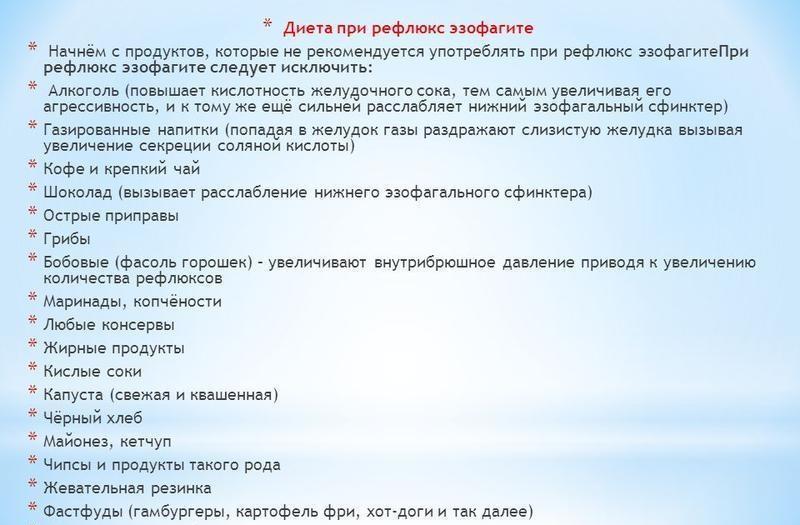
Foods prohibited during the diet
There are certain rules, subject to which you can influence the symptoms of the disease, reducing their severity:
- to reduce the acidity of gastric juice, it is recommended to drink 200 ml of cold water before each meal. It is advisable to do this 10-15 minutes before meals;
- completely stop drinking alcoholic beverages;
- follow the technology of cooking, especially fish and meat. You also need to ensure that the food is at a moderate temperature;
- drink 100 ml of potato juice or eat 20 g of walnuts daily - this will prevent the development of reflux;
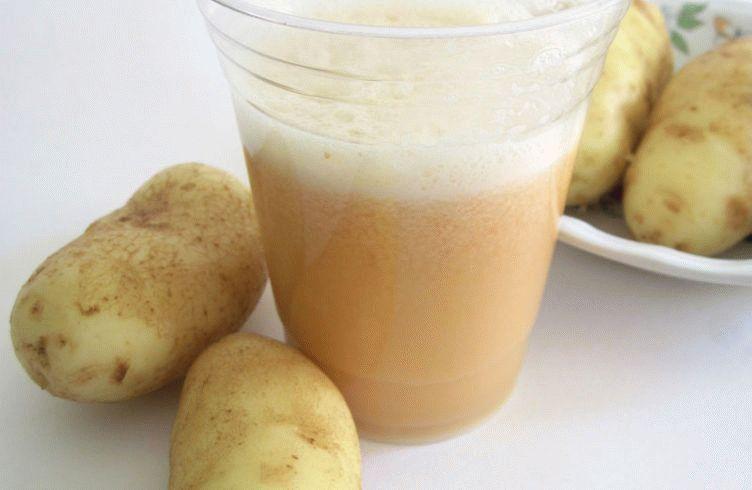
Potato juice
- you need to forget about nighttime snacks forever, because it negatively affects the digestive system and the entire body as a whole;
- if the pain syndrome is pronounced, it is advisable to eat in an upright position position, and for several hours after eating you need to walk or sit, but in no case lie;
- to provide a calming and anti-inflammatory effect on the body, it is recommended to drink 150 ml of chamomile broth before going to bed.
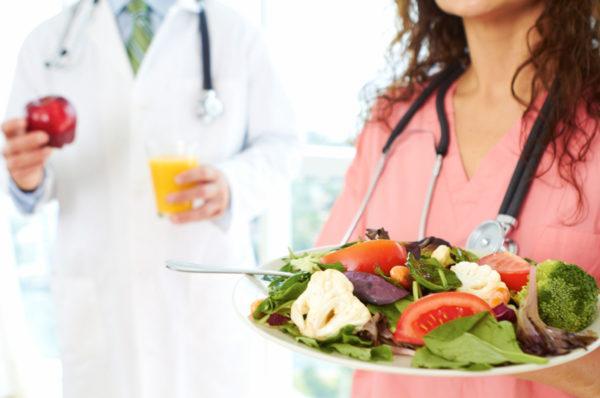
Nutritional rules for GERD
Reflux esophagitis is a serious chronic disease, therefore, with a diet, the patient can only count on a decrease in the frequency of attacks. Improper or unbalanced nutrition in this case leads to negative consequences (relapse of the disease, exacerbation symptoms, the development of the inflammatory process, etc.), so the diet should accompany the patient throughout his life.
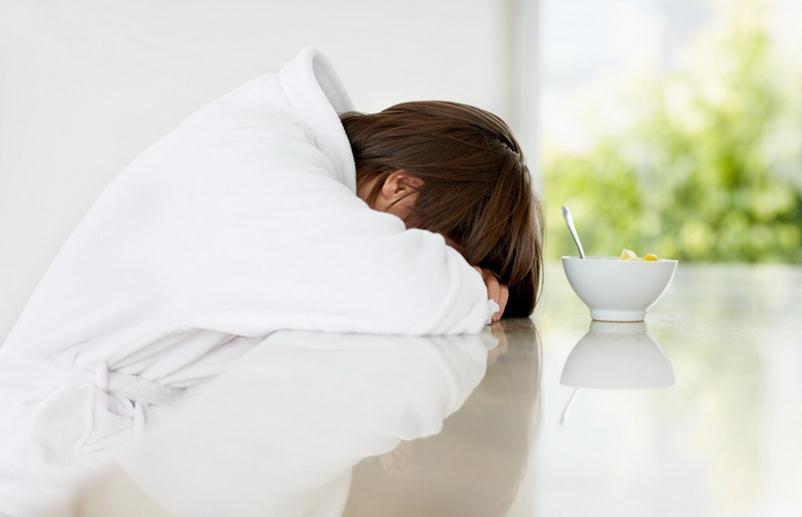
The consequences of poor diet can be the most serious

